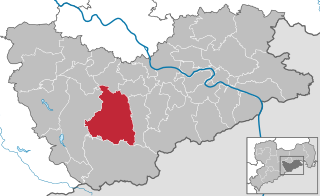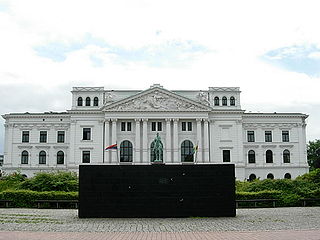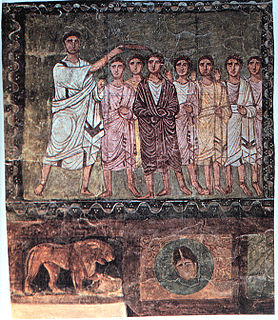
1670 (MDCLXX) was a common year starting on Wednesday of the Gregorian calendar and a common year starting on Saturday of the Julian calendar, the 1670th year of the Common Era (CE) and Anno Domini (AD) designations, the 670th year of the 2nd millennium, the 70th year of the 17th century, and the 1st year of the 1670s decade. As of the start of 1670, the Gregorian calendar was 10 days ahead of the Julian calendar, which remained in localized use until 1923.
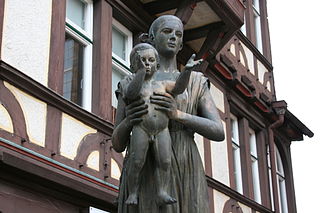
Henry I of Hesse "the Child" was the first Landgrave of Hesse. He was the son of Henry II, Duke of Brabant and Sophie of Thuringia.

Johann Bernhard Fischer von Erlach was an Austrian architect, sculptor, and architectural historian whose Baroque architecture profoundly influenced and shaped the tastes of the Habsburg Empire. His influential book A Plan of Civil and Historical Architecture (1721) was one of the first and most popular comparative studies of world architecture. His major works include Schönbrunn Palace, Karlskirche, and the Austrian National Library in Vienna, and Schloss Klessheim, Holy Trinity Church, and the Kollegienkirche in Salzburg.

Friedrich Karl von Schönborn was the Prince-Bishop of Würzburg and Prince-Bishop of Bamberg from 1729 to 1746. He also served as Reichsvizekanzler (Vice-Chancellor) of the Holy Roman Empire from 1705 to 1734.
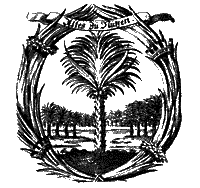
The Fruitbearing Society was a German literary society founded in 1617 in Weimar by German scholars and nobility. Its aim was to standardize vernacular German and promote it as both a scholarly and literary language, after the pattern of the Accademia della Crusca in Florence and similar groups already thriving in Italy, followed in later years also in France (1635) and Britain.
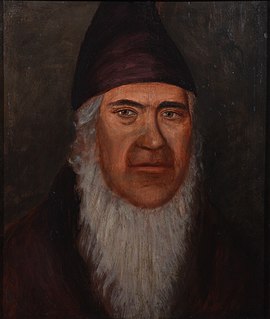
John George Rapp was the founder of the religious sect called Harmonists, Harmonites, Rappites, or the Harmony Society.

Louis VI of Hesse-Darmstadt was Landgrave of Hesse-Darmstadt from 1661 to 1678.
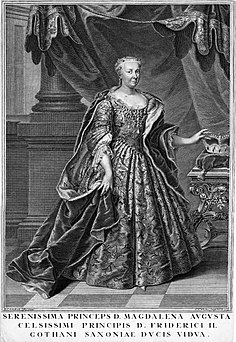
Princess Magdalena Augusta of Anhalt-Zerbst was, by birth, a Princess of Anhalt-Zerbst and, by marriage, a Duchess of Saxe-Gotha-Altenburg. She was the maternal grandmother of George III of the United Kingdom.

Éléonore Marie Desmier d'Olbreuse was the wife of George William, Duke of Brunswick-Lüneburg. She was Countess of Wilhelmsburg from 1674 and Duchess of Brunswick-Lüneburg from 1676. She was the mother of Sophia Dorothea of Celle, who was the wife of George I. Thus she is the maternal grandmother of George II
The Hitler family comprises the relatives and ancestors of Adolf Hitler, an Austrian-born German politician and the leader of the National Socialist German Workers' Party, commonly known as the Nazi Party. He was dictator of Germany, holding the titles Chancellor of Germany from 1933 to 1945, and served as head of state as Führer und Reichskanzler from 1934 to 1945. He is noted for his central role in the rise of fascism in Germany, provoking the start of World War II, and the death of millions of people in the Holocaust.

Johann Kasimir Kolbe von Wartenberg was the first ever Minister-President of the kingdom of Prussia, and the head of the "Cabinet of Three Counts".
Sayn-Wittgenstein-Hohenstein was a county between Hesse-Darmstadt and Westphalia.

Sophia Albertine, Countess of Erbach-Erbach, was Countess of Erbach-Erbach by birth and by marriage Duchess of Saxe-Hildburghausen. From 1724 to 1728, she was Regent of this Thuringian state.
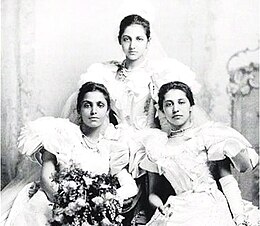
Princess Catherine Hilda Duleep Singh, was the second daughter of H.H. Maharaja Sir Duleep Singh and Maharani Bamba née Müller. She was educated in England and in 1895 she was presented at Court. She became a suffragist, but did not take part in Emmeline Pankhurst’s Suffragette movement.
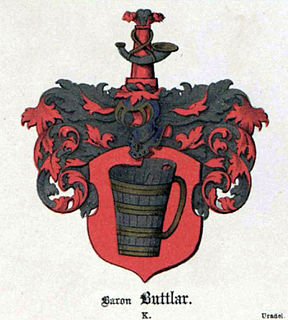
Buttlar is the name of an old Upper Franconian-Hessian noble family. The lords of von Buttlar originate from the ancient nobility of Buchonia. Branches of the family also reached Westphalia, Saxony, Prussia, Curonia, France, Poland, Russia and Hungary, and remain partly to this day. The Buttlar and Treusch von Buttlar families of Hessen has since 1660 belonged to the Old Hessian Knighthood, the oldest foundation in Hessen.

Sophia of Saxe-Weissenfels was a German aristocrat and culture patron, Countess of Brandenburg-Bayreuth by marriage to George William, Margrave of Brandenburg-Bayreuth.





